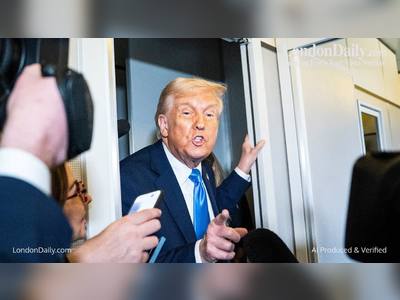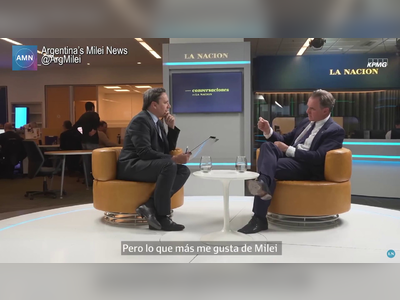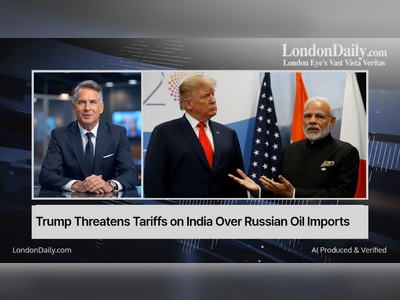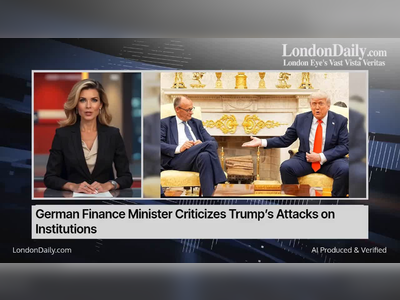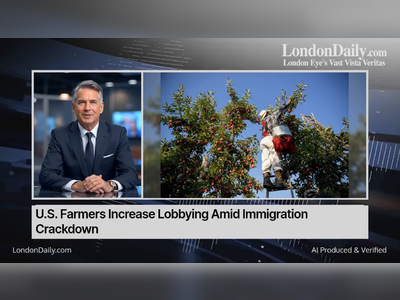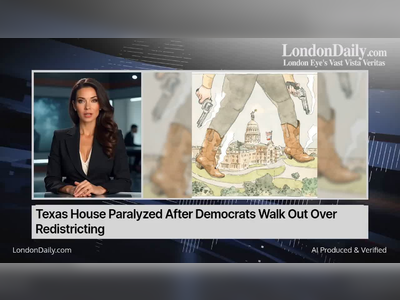Historian Sir Niall Ferguson Calls 2022 the Last Viable Moment to End Russia‑Ukraine War
Ferguson argues that had the US pressed harder in 2022, Ukraine might have secured a peace while holding the upper hand
Sir Niall Ferguson, historian and senior fellow at the Hoover Institution, has asserted that Ukraine lost its best opportunity to end the war in 2022 while holding the strategic initiative.
Ferguson stated: “There’s never been a good long game for Ukraine.
I stand by my view that we should have tried to end the war in 2022 when they had the upper hand, and I think future historians will say that the Biden administration blundered terribly when it did not push hard to end the war when Ukraine still had a shot, and still had some leverage.”
According to Ferguson, the war has entered a protracted stalemate, with neither side able to secure a decisive victory.
He has compared Ukraine’s situation to historical analogues, suggesting that Kyiv faces a choice between a South Korea‑style outcome—permanent guarantees and long‑term stability—and a South Vietnam‑style collapse after Western withdrawal.
He contends that Washington’s failure to press negotiation leverage in late 2022 represents a strategic error that limited Kyiv’s bargaining position .
In December 2023, Ferguson described the Biden administration’s foreign policy record—spanning from Afghanistan to Ukraine and Hamas—as deficient in deterrence.
He argued that US diplomacy had failed to prevent major adversaries from undertaking aggressive actions, including Russia’s further incursions into Ukraine .
Meanwhile, Ukrainian officials such as former Foreign Minister Dmytro Kuleba have warned that ongoing Western hesitancy in military assistance risks Ukraine losing the war.
Kuleba emphasized the existential stakes for Kyiv and called attention to limitations in current support, particularly concerning advanced weapons systems .
Commentaries from Western media have described a so‑called “slow yes” policy toward Ukraine, in which pledges of support were made incrementally and often delayed.
Critics argue this approach contributed to a stalemate by failing to provide decisive military aid at a moment of Ukrainian momentum in 2022.
By contrast, accelerated delivery of systems like HIMARS, Abrams tanks, and F‑16 jets only materialised after the frontlines had hardened, reducing their impact on the conflict’s trajectory .
Ferguson’s commentary draws on long‑standing themes in realist foreign‑policy discourse: states must act swiftly when opportunity arises.
He expressed concern that missed timing and insufficient diplomatic pressure deprived Ukraine of negotiating advantages that could have altered the course of the conflict in early 2022 .
At the same time, analysts note that Russia under President Vladimir Putin appears committed to a long‑duration campaign.
Reports from mid‑2025 indicate that Russian negotiating postures and rhetoric suggest a strategy aimed at wearing down Ukrainian resistance over years rather than seeking immediate peace terms .
Ferguson’s remark that future historians may view inaction in 2022 as a significant misstep underscores debate over Western policy timing, leverage and the strategic calculation of supporting Ukraine at critical early moments.
Ferguson stated: “There’s never been a good long game for Ukraine.
I stand by my view that we should have tried to end the war in 2022 when they had the upper hand, and I think future historians will say that the Biden administration blundered terribly when it did not push hard to end the war when Ukraine still had a shot, and still had some leverage.”
According to Ferguson, the war has entered a protracted stalemate, with neither side able to secure a decisive victory.
He has compared Ukraine’s situation to historical analogues, suggesting that Kyiv faces a choice between a South Korea‑style outcome—permanent guarantees and long‑term stability—and a South Vietnam‑style collapse after Western withdrawal.
He contends that Washington’s failure to press negotiation leverage in late 2022 represents a strategic error that limited Kyiv’s bargaining position .
In December 2023, Ferguson described the Biden administration’s foreign policy record—spanning from Afghanistan to Ukraine and Hamas—as deficient in deterrence.
He argued that US diplomacy had failed to prevent major adversaries from undertaking aggressive actions, including Russia’s further incursions into Ukraine .
Meanwhile, Ukrainian officials such as former Foreign Minister Dmytro Kuleba have warned that ongoing Western hesitancy in military assistance risks Ukraine losing the war.
Kuleba emphasized the existential stakes for Kyiv and called attention to limitations in current support, particularly concerning advanced weapons systems .
Commentaries from Western media have described a so‑called “slow yes” policy toward Ukraine, in which pledges of support were made incrementally and often delayed.
Critics argue this approach contributed to a stalemate by failing to provide decisive military aid at a moment of Ukrainian momentum in 2022.
By contrast, accelerated delivery of systems like HIMARS, Abrams tanks, and F‑16 jets only materialised after the frontlines had hardened, reducing their impact on the conflict’s trajectory .
Ferguson’s commentary draws on long‑standing themes in realist foreign‑policy discourse: states must act swiftly when opportunity arises.
He expressed concern that missed timing and insufficient diplomatic pressure deprived Ukraine of negotiating advantages that could have altered the course of the conflict in early 2022 .
At the same time, analysts note that Russia under President Vladimir Putin appears committed to a long‑duration campaign.
Reports from mid‑2025 indicate that Russian negotiating postures and rhetoric suggest a strategy aimed at wearing down Ukrainian resistance over years rather than seeking immediate peace terms .
Ferguson’s remark that future historians may view inaction in 2022 as a significant misstep underscores debate over Western policy timing, leverage and the strategic calculation of supporting Ukraine at critical early moments.

